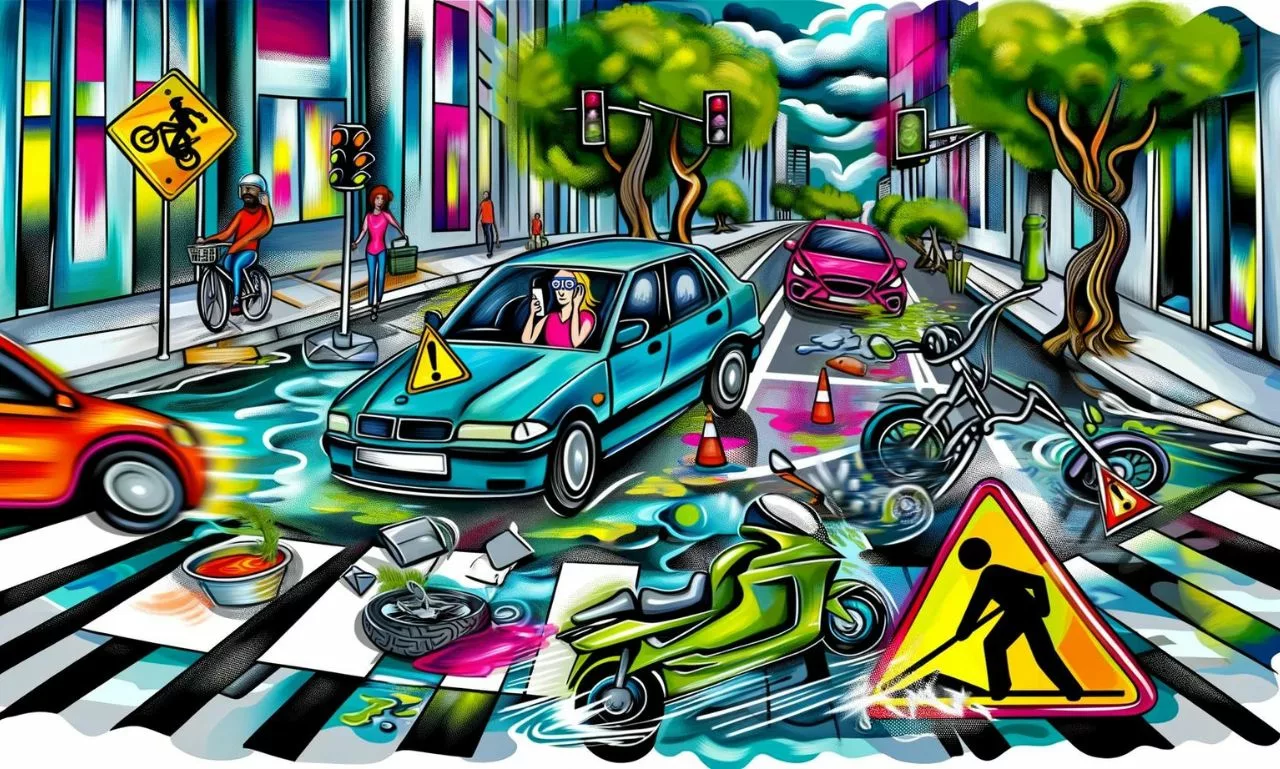Motorcycle crashes are a significant concern for road safety authorities and motorcyclists alike. They often result in more severe injuries or fatalities compared to car accidents due to the exposed nature of motorcycles and the lack of protective barriers. Understanding how these crashes occur can help in formulating effective preventive measures. This article will explore the common scenarios in which motorcycle crashes happen, based on research and data from road safety studies.
Table of Contents
1. Left-Turn Accidents
One of the most common types of motorcycle crashes occurs when a car makes a left turn in front of an oncoming motorcycle. This typically happens at intersections, where the car driver fails to see the motorcyclist or misjudges their speed. The motorcyclist may have little time to react, leading to a collision.
2. Lane Splitting
Lane splitting, where motorcyclists navigate between lanes of slow or stationary traffic, poses a risk of accidents. It is legal only in some places and can be hazardous due to the close proximity of vehicles and the reduced space to maneuver. Accidents occur when car drivers change lanes without noticing the approaching motorcyclist.
3. Speeding and Reckless Riding
Excessive speed reduces a rider’s ability to react in time to avoid a hazard. Speeding and reckless riding, such as weaving through traffic, significantly increase the risk of a crash. High-speed impacts are often more severe and result in more serious injuries or fatalities.
4. Collisions at Intersections
Intersections are hotspots for motorcycle crashes. These accidents can happen due to various reasons, including drivers running red lights or stop signs, misjudging the motorcycle’s speed, or the motorcycle being in a driver’s blind spot. Motorcyclists are also at risk when they attempt to pass cars near intersections.
5. Road Hazards
Motorcycles are more susceptible to accidents caused by road hazards than cars are. Small objects on the road, potholes, uneven road surfaces, wet or slippery conditions, and dead animals can cause a motorcyclist to lose control and crash.
6. Alcohol and Drug Use
Alcohol or drug impairment plays a major role in contributing to motorcycle accidents. Impaired riding affects judgment, reaction times, and motor skills, increasing the likelihood of an accident.
7. Inexperience
Inexperienced riders may lack the necessary skills to handle complex traffic situations or adverse road conditions. They might overreact or make poor decisions in emergency situations, leading to crashes.
8. Vehicle Blind Spots
Motorcycles can easily fall into the blind spots of cars and trucks, making them invisible to drivers who are changing lanes or turning. Accidents occur when a driver fails to detect a motorcycle in their blind spot and makes a move.
9. Rear-End Collisions
Motorcycles stopping quickly can lead to rear-end collisions, especially if the following vehicle is a car or truck that cannot stop as promptly. These accidents can be particularly dangerous for motorcyclists, as they can be thrown off their bikes.
10. Opening Car Doors
In urban areas, a common hazard for motorcyclists is car doors opening into their path. This can occur when a parked car’s driver or passenger fails to check for oncoming traffic before opening their door. The motorcyclist may have little time to avoid the door, leading to a crash.
Conclusion
Understanding the common scenarios in which motorcycle crashes occur is crucial for both riders and other road users. Awareness and defensive driving can go a long way in preventing these accidents. Motorcyclists should always wear protective gear, ride sober, and receive proper training. Car drivers should be vigilant about motorcycles, especially at intersections and while changing lanes. By working together, we can reduce the incidence of motorcycle crashes and make the roads safer for everyone.
